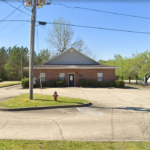On May 24, the California Senate passed SB 1899 despite opposition from industry groups. The bill, sponsored by Senator John Burton (D-San Francisco), has been referred to the Assembly Judiciary Committee for further consideration.
The bill-which would likely take effect in January 2001-would reopen (for one year from the enactment of the bill) claims related to the 1994 Northridge Earthquake which are now barred because the existing statute of limitations has expired.
“It’s terrible public policy,” said Sam Sorich, vice president and western regional manager for the National Association of Independent Insurers (NAII). “It’s inviting fraud and providing no real consumer benefit.”
Also opposed to SB 1899 is the Personal Insurance Federation of California (PIFC). Dan Dunmoyer, PIFC president, feels that it is “an unnecessary and flawed measure.”
“Unfortunately, our arguments kind of fell on parched earth in the Senate,” Sorich said. “I hope that, given the little bit of time that has passed, lawmakers will realize the implications of this bill.” Those implications include fraudulent filings, investigatory costs and possible litigation costs-not to mention the fact that it will allow claims that have been settled for years to be reopened.
For example, if a homeowner has damage that occurred in 1998, yet he or she is contending that the damage occurred in 1994, evidence could reveal that the damage was, in fact, not earthquake-related. “To make that case, you’re going to force companies to expend a lot of the policyholders’ own money to defend that claim, and I just don’t think that’s a good expenditure of resources,” Sorich explained. “And in most of those cases, the insurance company is probably going to prevail.”
Dunmoyer called SB 1899 “a class-action lawsuit dream for plaintiff’s lawyers who stand to make hundreds of millions of dollars.” He feels that once the lawsuits are handled, consumers will collect next to nothing.
PIFC reported that its companies have settled 99.9 percent of the 206,468 Northridge earthquake claims received. “There is no need for SB 1899; however, there is a need for the Legislature to work with the insurance industry to resolve the few remaining Northridge claims,” Dunmoyer said.
Within 40 seconds, the devastating 1994 Northridge quake killed 60 people, injured 12,000 and caused roughly $15 billion in insured losses. It also destroyed or damaged more than 200,000 homes or left uninhabitable 114,000 buildings. Both the NAII and PIFC feel that companies reacted quickly to rectify any mistakes made following the catastrophic event.
“Even when you look at the number of victims who showed up and complained at recent Northridge hearings…when you put it next to the hundreds of thousands and to the $15 billion in claims payments that have been paid, it’s a very miniscule situation, and there is no real proof-just allegations-that companies have acted illegally,” Sorich said.
The NAII is opposed to SB 1899 for some of the same reasons that they are opposed to SB 622, Sorich said. SB 622, which has been sitting in the inactive file in the Assembly since last summer, deals with the “inception of loss” issue, or the point in time which a reasonable person knew or should have known there was appreciable damage caused by an earthquake.
“We probably would not have any opposition to it on a going-forward basis,” Sorich said, explaining that the NAII might accept the bill if there were some outside perimeters “to cut off the claims at some point.”
The bill seeks to establish a “reasonable person” standard, for Northridge retroactively as well as for future quakes. At a recent press conference, California Insurance Commissioner Chuck Quackenbush urged the Legislature to take quick, affirmative action on the bill.
“Our argument [to SB 622] is based on the opposition to the concept of the Legislature coming in and rewriting earthquake insurance contracts,” Sorich said. “In the sense that, again, this bill [SB 1899] is really going back and rewriting the contracts, but in an even more radical way.”
One other earthquake-related bill, SB 1925, in its original version allowed policyholders to request earthquake insurance at any time, even if they recently declined it. That bill has since been modified, but the NAII, which was adamantly opposed to the original bill, is still opposed to the newer version. “In practice, many California homeowners insurers offer earthquake coverage when a customer requests it, even if it falls outside the time frame specified by law,” Sorich said.
California law already requires homeowner insurers to offer earthquake coverage to policyholders at the time of policy issuance and, if the offer isn’t accepted, every other year at renewal.
In its current version, the bill only applies to policyholders under the California Earthquake Authority (CEA). “What the bill says now is that in the non-offer year, the company has to put a notice out saying ‘earthquake is available,'” Sorich said. “And once that notice goes out, the person can ask for an offer of earthquake coverage.”
According to Sorich, the NAII is continuing to oppose SB 1925 for two reasons:
1) There doesn’t seem to be any problem right now as far as if someone wants earthquake insurance at any time, he or she can get it; and
2) The bill makes some changes in terms of the financial structure of the CEA.
“The bill in its current form would set a strict standard for the kind of reinsurance that the CEA would be able to purchase,” Sorich said. “Right now I think that’s fine, but if the reinsurance market tightens up in the future, it might make it more difficult for the CEA to find the reinsurance it needs.”
Insurers as well as the NAII and PIFC plan to continue to actively contest these earthquake bills.
Topics Catastrophe California Carriers Claims
Was this article valuable?
Here are more articles you may enjoy.


 Longtime Alabama Dentist Charged With Insurance Fraud in 2025 Office Explosion
Longtime Alabama Dentist Charged With Insurance Fraud in 2025 Office Explosion  Howden-Driven Talent War Has Cost Brown & Brown $23M in Revenue, CEO Says
Howden-Driven Talent War Has Cost Brown & Brown $23M in Revenue, CEO Says  Maine Plane Crash Victims Worked for Luxury Travel Startup Led by Texas Lawyer
Maine Plane Crash Victims Worked for Luxury Travel Startup Led by Texas Lawyer  Charges Dropped Against ‘Poster Boy’ Florida Contractor Accused of Insurance Fraud
Charges Dropped Against ‘Poster Boy’ Florida Contractor Accused of Insurance Fraud 


